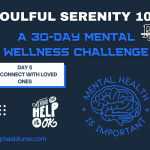Trust is the bedrock upon which all healthy and lasting relationships are built. Whether it’s a romantic partnership, a friendship, a professional collaboration, or even a familial bond, trust plays a pivotal role in the success and longevity of the connection. In this article, we will delve deep into the concept of trust, exploring what it means, why it’s essential, and how to build and nurture it in various types of relationships.
Understanding Trust
Trust is a multifaceted concept that encompasses belief, confidence, and reliance on someone or something. It is the feeling of assuredness that others will act in ways that are predictable, reliable, and in your best interests. Trust in a relationship is akin to the foundation of a building. Just as a solid foundation supports the entire structure, trust underpins the stability and strength of a relationship.
The Dimensions of Trust
Trust is not a monolithic concept but rather a complex interplay of several dimensions:
- Reliability: This dimension refers to the belief that someone will consistently do what they say they will do. It involves keeping promises, meeting expectations, and being dependable.
- Honesty: Honesty involves the absence of deception or manipulation. It’s about being truthful, transparent, and forthright in your communication and actions.
- Consistency: Consistency is about maintaining a stable and predictable pattern of behavior over time. It reassures others that you are not capricious or volatile.
- Vulnerability: Trust often requires a degree of vulnerability. It’s the willingness to open up, share your thoughts and feelings, and allow yourself to be known by others.
- Empathy: Empathy involves understanding and caring about the emotions, needs, and perspectives of others. It fosters a sense of connection and mutual support.
- Competence: Trust can also be based on competence or expertise. It’s the belief that someone has the skills and knowledge to fulfill their commitments and responsibilities.
The Trust Equation
A useful way to conceptualize trust is through a simple equation: Trust = (Credibility + Reliability + Intimacy) / Self-Orientation
- Credibility: The perception of trustworthiness, competence, and honesty.
- Reliability: The consistency in delivering on promises and commitments.
- Intimacy: The extent to which one is willing to open up and be vulnerable in the relationship.
- Self-Orientation: The extent to which one prioritizes their self-interest over the interests of the other person.
This equation highlights that trust is not just about the other person’s qualities but also about your own willingness to be open and selfless in the relationship.
Why Trust Matters
Trust is an essential component of any healthy relationship for several reasons:
1. Emotional Safety
In a trusting relationship, individuals feel emotionally safe. They can express their thoughts, feelings, and concerns without fear of judgment or rejection. This emotional safety fosters intimacy and connection.
2. Conflict Resolution
Trust is critical for resolving conflicts in a constructive manner. When trust exists, individuals are more likely to approach conflicts with the belief that the other person has their best interests at heart. This makes it easier to find mutually beneficial solutions.
3. Collaboration
Trust is crucial in collaborative endeavors, whether in personal or professional settings. When individuals trust one another, they are more likely to share ideas, cooperate, and work together effectively.
4. Reduced Stress
Trust reduces stress and anxiety in relationships. When you trust someone, you don’t have to constantly second-guess their intentions or actions, leading to a more relaxed and harmonious dynamic.
5. Longevity
Relationships built on trust are more likely to stand the test of time. Trust forms the foundation of enduring connections, making it possible for relationships to weather challenges and transitions.
Building Trust in Relationships
Building trust is a dynamic and ongoing process that requires effort, patience, and commitment. It’s something that can be cultivated and strengthened over time. Here are some strategies for building trust in different types of relationships:
1. Trust in Romantic Relationships
a. Open and Honest Communication
Effective communication is key to building trust in romantic relationships. Be open and honest with your partner about your thoughts, feelings, and needs. Avoid hiding information or keeping secrets, as these can erode trust.
b. Keep Your Promises
Consistently follow through on your commitments and promises. This includes both big and small promises. When you demonstrate reliability, your partner will feel more secure in the relationship.
c. Show Empathy and Support
Demonstrate empathy and support for your partner’s emotions and experiences. Make an effort to understand their perspective and provide emotional support during challenging times.
d. Share Vulnerabilities
Vulnerability is an essential component of trust. Share your fears, insecurities, and vulnerabilities with your partner. When both partners are willing to be open and vulnerable, it deepens the connection and trust between them.
e. Address Past Issues
If trust has been damaged in the past, address the issues openly and work together to rebuild it. This may involve seeking couples therapy or counseling to help facilitate the process.
2. Trust in Friendships
a. Be Reliable
In friendships, reliability is crucial. Show up for your friends when you say you will, and be there to support them in times of need. Consistency in your actions helps build trust over time.
b. Listen Actively
Active listening is a sign of respect and empathy. When your friends feel heard and understood, they are more likely to trust you. Put away distractions and focus on what your friend is saying.
c. Keep Confidentiality
Respect your friends’ privacy by keeping their confidences. When you honor their trust by not sharing sensitive information, it strengthens your bond.
d. Offer Help and Support
Be there for your friends when they need help or support. Whether it’s offering a lending hand during a difficult time or celebrating their achievements, showing up for your friends builds trust.
e. Apologize and Forgive
Friendships can encounter conflicts and misunderstandings. When trust is strained, be willing to apologize if you’ve made a mistake, and be forgiving when your friends do the same. Repairing the relationship after trust has been damaged is a testament to its strength.
3. Trust in Professional Relationships
a. Deliver on Your Promises
In the professional world, reliability is paramount. Always deliver on your professional commitments and promises. This includes meeting deadlines, fulfilling responsibilities, and being accountable for your work.
b. Be Transparent
Transparency is a cornerstone of trust in professional settings. Be transparent about your actions, decisions, and the reasons behind them. Avoid hidden agendas or ulterior motives.
c. Communicate Effectively
Clear and effective communication is vital for trust in the workplace. Keep colleagues and superiors informed about your progress, challenges, and any changes in plans.
d. Collaborate and Support
Build trust with colleagues by being a team player. Collaborate effectively, offer help and support when needed, and be a reliable partner in projects and tasks.
e. Uphold Ethics
Maintain a strong ethical foundation in your professional conduct. Uphold moral principles and values, as ethical behavior is a key driver of trust in professional relationships.
4. Trust in Family Relationships
a. Prioritize Quality Time
Spending quality time together is essential for building trust within families. Engage in activities that promote bonding and create shared experiences.
b. Communication and Understanding
Open and empathetic communication is crucial in family relationships. Listen to each family member’s perspectives and feelings, and strive to understand their point of view.
c. Honesty and Forgiveness
Families can face conflicts and misunderstandings. Encourage honesty and forgiveness within the family unit. Address issues openly and work towards resolution.
d. Support and Encouragement
Support and encourage one another’s goals, dreams, and aspirations. When family members feel supported, it fosters trust and a sense of security.
e. Boundaries and Respect
Establish healthy boundaries within the family and respect each other’s boundaries. This helps create an environment of trust and mutual respect.
Nurturing and Maintaining Trust
Building trust is just the beginning; nurturing and maintaining it over time is equally important. Here are some tips to help you continue to strengthen trust in your relationships:
1. Consistency
Consistency in your words and actions is essential for maintaining trust. People rely on patterns of behavior to judge trustworthiness, so strive to be consistently reliable, honest, and supportive.
2. Communication
Regular and open communication is key to keeping trust alive. Check in with your loved ones, ask for feedback, and share your feelings and thoughts. Effective communication can help address any issues before they become major trust obstacles.
3. Apologize and Make Amends
We all make mistakes from time to time. When you do, take responsibility for your actions, apologize sincerely, and take steps to make amends. Demonstrating accountability can actually strengthen trust in the long run.
4. Be Trustworthy
The most effective way to maintain trust is to consistently exhibit trustworthy behavior. Keep your promises, be honest, and act in ways that align with your values and principles.
5. Respect Boundaries
Respecting the boundaries of others is crucial for maintaining trust. Whether it’s personal space, privacy, or emotional boundaries, honoring these limits shows that you value the other person’s autonomy and trustworthiness.
6. Seek Professional Help When Needed
In some cases, trust issues in relationships can become deeply ingrained or insurmountable without professional intervention. If trust issues persist and threaten the relationship’s well-being, consider seeking the help of a therapist or counselor.
Rebuilding Trust
Sometimes, trust in a relationship is damaged or broken. While rebuilding trust can be challenging, it’s not impossible. Here are steps to take when trust has been compromised:
1. Acknowledge the Breach
The first step in rebuilding trust is acknowledging that trust has been broken. Avoid denying or minimizing the breach, as this can further erode trust.
2. Take Responsibility
If you were the one who breached trust, take full responsibility for your actions. This means acknowledging what you did, understanding its impact, and expressing genuine remorse.
3. Apologize Sincerely
Offer a sincere and heartfelt apology to the person you hurt. Be specific about what you’re apologizing for and express your commitment to making amends.
4. Make Amends
Take concrete steps to make amends and correct the situation. This may involve changes in behavior, setting boundaries, or seeking professional help.
5. Rebuild Trust Over Time
Rebuilding trust is a gradual process that takes time. Be patient and understanding as the person who was hurt learns to trust again. Consistently demonstrate trustworthiness and reliability to facilitate the healing process.
6. Seek Support
In some cases, rebuilding trust may require the assistance of a therapist or counselor. Professional guidance can help both parties navigate the process and work through underlying issues.
Trusting Yourself
While much of this article has focused on building and maintaining trust in relationships with others, it’s essential to emphasize the importance of trusting yourself. Self-trust is the foundation upon which healthy relationships are built, as your ability to trust others is often a reflection of your trust in yourself.
To trust yourself:
- Set Boundaries: Establish clear boundaries that protect your physical, emotional, and mental well-being. When you honor your boundaries, you demonstrate self-respect and self-trust.
- Listen to Your Intuition: Pay attention to your gut feelings and instincts. Your intuition can be a valuable guide in making decisions and assessing whether a relationship is healthy and trustworthy.
- Learn from Mistakes: When you make mistakes or errors in judgment, use them as opportunities for growth and learning. Self-trust involves acknowledging your imperfections and continuing to evolve.
- Practice Self-Compassion: Be kind and compassionate toward yourself. Self-trust is not about being perfect but about accepting yourself as you are and having faith in your ability to navigate life’s challenges.
Conclusion
Trust is the cornerstone of all meaningful and enduring relationships. Whether in romantic partnerships, friendships, professional collaborations, or family bonds, trust is the glue that holds these connections together. By understanding the dimensions of trust, recognizing its importance, and actively working to build and maintain it, you can create stronger, more resilient, and deeply fulfilling relationships in your life. Remember that trust begins with yourself, so cultivate self-trust as you journey through the intricate web of human connections. Trust is not just the foundation of lasting bonds; it’s the fuel that keeps them strong and vibrant.




